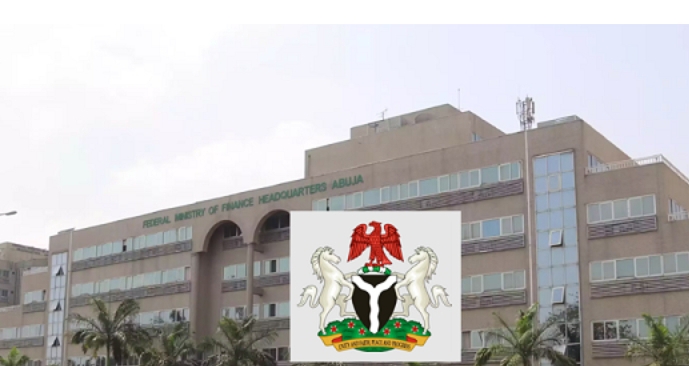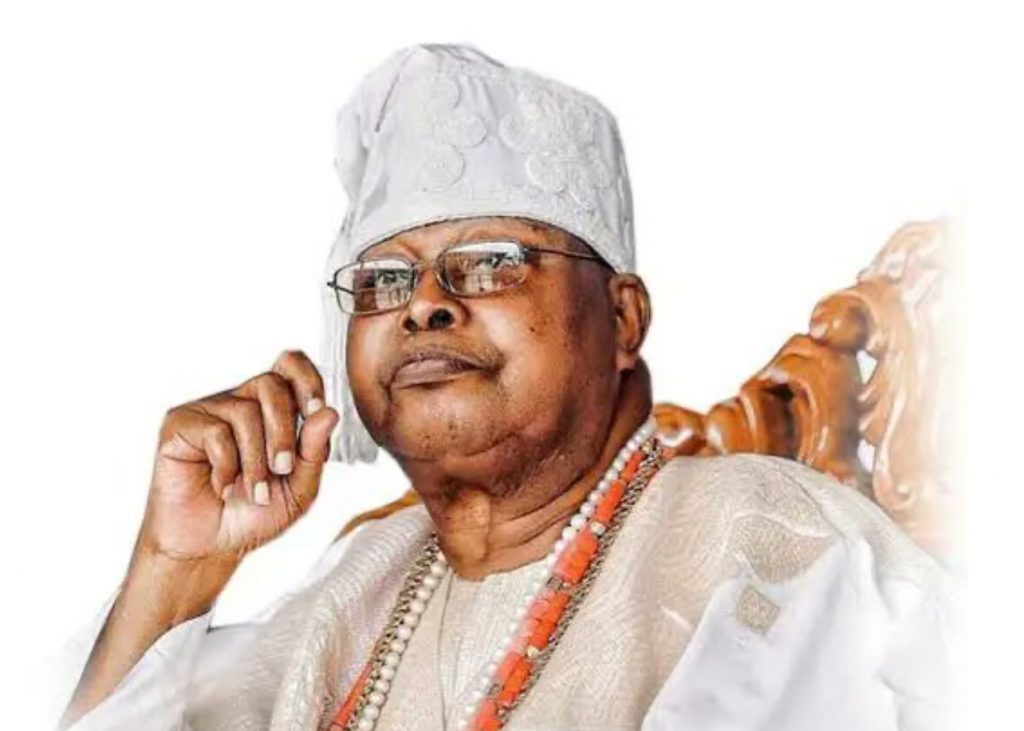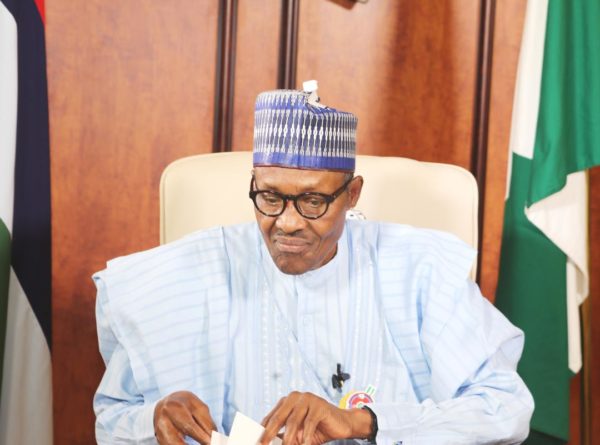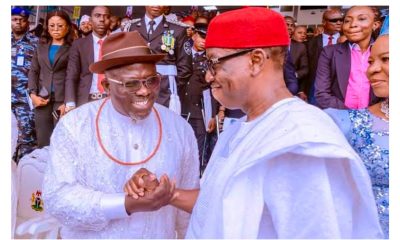news
Alleged Fraud: “Will the masses finally reap the dividends of democracy, particularly at the state and local government levels?” questions arise as N1.1 trillion is shared among tiers of government from Federation Account revenue, yet, analysis suggests otherwise.

 Allocation highest ever
Allocation highest ever
N500b kept in savings
Yusuf: let gains of reform reflect on citizens
It was a huge “payday” for the tiers of government yesterday.
The federal, state and local governments shared a handsome N1.127 trillion from the N1.674 trillion collectable revenue in December 2023.
Over N500 billion was saved to take care of future needs.
It is the second consecutive month that the revenue shared from the central purse crossed the N1 trillion mark.
The first time it did was in September 2023.
From the N655.932 billion shared in May, the month that President Bola Ahmed Tinubu took office and pronounced that the “petrol subsidy is gone,” the revenue has been going up steadily (SEE TABLE).
The staggering figure, made available after the Federation Account Allocation Committee (FAAC) meeting yesterday, is a reflection of the nation’s economic upward movement, analysts said.
According to them, it also presents an opportunity for the government at all levels to ensure growth and development.
Economists last night said with increased revenue, the people should begin to get the dividends of democracy, especially at the state and local governments.
The agreement by FAAC members to allow N500 billion in savings is indicative of financial prudence, a member said.
Breaking down the revenue accruals, according to a statement by the FAAC, Companies Income Tax (CIT), Excise Duty, Petroleum Profit Tax (PPT), Value Added Tax (VAT), and Electronic Money Transfer Levy (EMTL) increased significantly.
But there is a slight decline in oil and gas royalties, import duty and CET levies.
Despite the remarkable revenue gains, the balance in the Excess Crude Account (ECA) remained static at $473,754.57.
The surplus in the federation account serves as a cushion for any unforeseen economic challenges that may arise.
A closer look at the activities surrounding the Federation Account has shown that N875.382 billion was received as gross statutory revenue for December 2023, which was slightly lower than the N882.560 billion received in November.
In terms of the Value Added Tax (VAT), December 2023 saw a significant increase compared to the previous month.
The gross revenue available from VAT stood at N492.506 billion, which is a N132.051 billion increase from November.
This surge in VAT revenue can be attributed to the improvement in economic activities and increased consumer spending during the festive season.
Further analysis of the revenue distribution revealed that the Federal Government got N383.872 billion from the total distributable revenue; states received N396.693 billion and the local government areas received N288.928 billion.
State collecting derivation funds from mineral revenue shared N57.915 billion, representing 13 per cent of the revenue.
Regarding distributable statutory revenue, the Federal Government received N173.729 billion, state governments, N88.118 billion and councils, N67.935 billion from the N363.188 billion generated.
From the distributable VAT revenue of N458.622 billion, the Federal Government received N68.793 billion, state governments received N229.311 billion, and local government councils received N160.518 billion.
The Electronic Money Transfer Levy (EMTL) of N17.855 billion was allocated as follows: the Federal Government received N2.678 billion, states got N8.928 billion and local government councils received N6.249 billion.
However, the stagnant Excess Crude Account raises concern about the need for strategic investment of surplus funds into critical sectors.
The slight decline in statutory revenue and continued dependence on oil and gas require further attention.
news
Just In : Awujale of Ijebuland,Sikiru Adetona, dies at 91

 The Awujale and paramount ruler of Ijebuland, Oba Sikiru Kayode Adetona, has passed away at the age of 91.
The Awujale and paramount ruler of Ijebuland, Oba Sikiru Kayode Adetona, has passed away at the age of 91.
The respected monarch reportedly died on Sunday, just hours after the announcement of the death of his longtime friend and former President, Muhammadu Buhari.
Mourning his passage, a prince of Ijebu, Prince Adedoyin Alatishe wrote on X, “Baami Ogbagba agbatewole , Erin wo. Omo anikilaya saagbu.”
Adetona, who ascended the throne in 1960, was one of Nigeria’s longest-reigning traditional rulers and widely revered for his contributions to the sociopolitical development of Ijebuland and Ogun State at large.
news
Breaking: Former president Muhammadu Buhari has Died at a clinic in London

 Former president muhammadu Buhari has died at a hospital in London this afternoon according to the family, He was former military head of state in 1983.
Former president muhammadu Buhari has died at a hospital in London this afternoon according to the family, He was former military head of state in 1983.
The family of the former president has announced the passing on of the former president, Muhammadu Buhari, GCFR, this afternoon in a clinic in London. May Allah accept him in Aljannatul Firdaus, Amin.”
Detials later
news
Breaking : Tinubu returns to Abuja tonight after diplomatic visits to Saint Lucia, Brazil,Says Onanuga

 President Bola Ahmed Tinubu is expected to arrive Abuja later tonight following a two-nation diplomatic tour that took him to Saint Lucia in the Caribbean and Brazil in South America.
President Bola Ahmed Tinubu is expected to arrive Abuja later tonight following a two-nation diplomatic tour that took him to Saint Lucia in the Caribbean and Brazil in South America.
His return was confirmed in a message posted on Saturday afternoon by the Special Adviser to the President on Information and Strategy, Mr. Bayo Onanuga, on his verified X handle, @aonanuga1956.
“President Bola Ahmed Tinubu returns to Abuja today after his two-nation visit to Saint Lucia and Brazil,” the presidential aide stated.
The President departed Nigeria on Saturday, June 28 for what was described as a strategic outreach aimed at strengthening ties with regions historically under-engaged in Nigeria’s diplomatic matrix.
His first stop was Saint Lucia, where he made a historic visit to build new ties and explore emerging partnerships with Caribbean states.
While in Saint Lucia, Tinubu interacted with regional leaders under the Organisation of Eastern Caribbean States (OECS), reinforcing Nigeria’s growing interest in Caribbean diplomacy and South-South cooperation.
He subsequently proceeded to Brazil to participate in the 17th BRICS Summit held in Rio de Janeiro.
On the sidelines of the summit, President Tinubu held a bilateral meeting with his Brazilian counterpart, President Luiz Inácio Lula da Silva.
The leaders co-chaired the Nigeria-Brazil high-level bilateral meeting , where they discussed mechanisms to boost trade, infrastructure financing, and cultural cooperation between Africa’s most populous country and Latin America’s largest economy.
With the President’s return, focus is expected to shift to domestic engagements and follow-up actions on the diplomatic and investment commitments made during his foreign tour.
-

 news5 years ago
news5 years agoUPDATE: #ENDSARS: CCTV footage of Lekki shootings intact – Says Sanwo – Olu
-

 news2 years ago
news2 years agoEnvironmental Pollutions : OGONI COMMUNITY CRIES OUT, THREATENS TO SHUT DOWN FIRSTBANK,SHELL OIL COMPANY OPERATIONS FOR NOT PAYING COURT AWARD
-

 lifestyle5 years ago
lifestyle5 years agoFormer Miss World: Mixed reactions trail Agbani Darego’s looks
-

 health4 years ago
health4 years agoChairman Agege LG, Ganiyu Egunjobi Receives Covid-19 Vaccines
-

 lifestyle4 years ago
lifestyle4 years agoObateru: Celebrating a Quintessential PR Man at 60
-

 health5 years ago
health5 years agoUPDATE : Nigeria Records 790 new cases of COVID-19
-

 politics3 months ago
politics3 months agoBreaking : Oborevwori , Okowa others dumps PDP, defects to APC
-

 news2 months ago
news2 months agoBREAKING: Tinubu swears in new NNPCL Board


